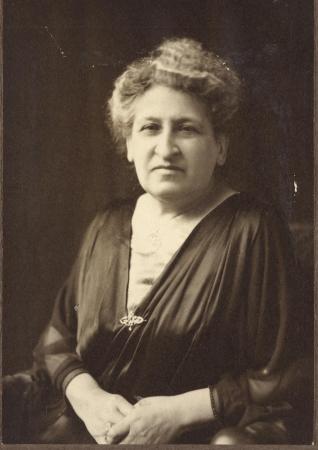In the summer of 1914, the women of the International Woman Suffrage Alliance (IWSA) gathered for the preparation of the congress of the World Alliance in Berlin, 1915. The start of the First World War however, spoilt the course of this organization tremendously. If the congress was to be held at all, was the general thought, it needed to take place in a neutral country – not in Germany, Berlin.
Among the women of the IWSA was Aletta Jacobs. On behalf of the National Committee for International Interests of the Society for Women’s Votes, she made the request to arrange the congress in the Netherlands, who remained neutral in the war. It needed to be a professional meeting, she argued, without any celebration. By making this request, Jacobs became spokesperson for the many women, from both countries at war as neutral states, who were in favor of such a congress.
Carrie Chapman Catt, being the president of the WILPF, was urged to take leadership in the organization. Catt however, didn’t agree with the plan. In one of her letters she wrote to Jacobs, she explains that the war made it possible for her to drop all international obligations and focus on the campaign for the establishment of women’s voting in New York State. The organization of a congress was a monstrous job in itself, but organizing it in a time of war would make it even more complicated: it was the last thing Catt wanted on her to do-list, so she declined.
Chrystal Macmillan, board member of the IWSA, suggested the idea to have a congress not on behalf of a women’s society, but for individuals instead: a congress of women. Jacobs received so much support for the execution of this plan, that she decided to carry out the plan.[1] The result of that was the organization of the Hague International Congress of Women, held from the 28th of April till the 1st of May. Approximately 1500 women, from both countries at war as neutral states, attended the congress to discuss sustainable, international peace. The initiative would prove to be the origin of the Women’s International League for Peace and Freedom, or WILPF.
By Sanne Stevens
Sanne is a Master’s student of History of Society at the Erasmus School of History, Culture and Communications (ESHCC) a faculty of the Erasmus University in Rotterdam. She is currently an intern at Atria, where she is involved in the WILPF centennial.
This Spring, on April 25, 2015 , the Women's International League for Peace and Freedom (WILPF) will celebrate its Centenary in the Peace Palace. For this occasion, the Peace Palace Library is cooperating with the Atria Institute in Amsterdam to promote and bring awareness to the history behind WILPF and the Congress of 1915 by publishing blogs and newsitems on both our websites.
[1] Mineke Bosch, Een onwrikbaar geloof in rechtvaardigheid. Aletta Jacobs 1854-1929 (Amersfoort 2005) 537, 540-541.
